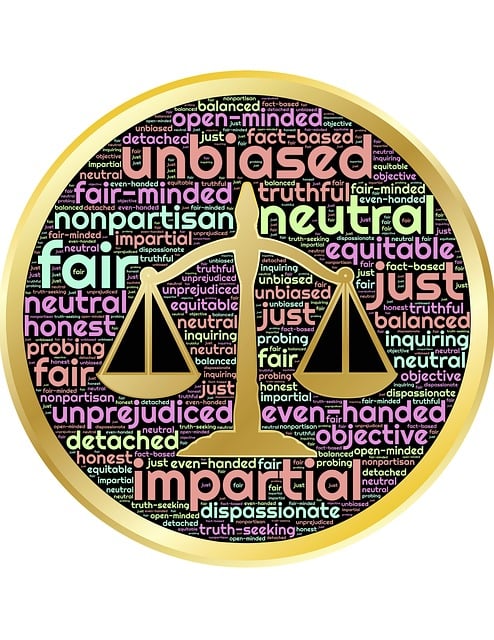Criminal Defense Attorneys specializing in federal drug cases require a deep understanding of the Federal Sentencing Guidelines for Drug Offenses, which significantly impact outcomes. These guidelines, considering drug type, quantity, and criminal history, demand a nuanced approach beyond general defenses. Effective representation involves meticulous case preparation, strategic pleading, and a strong grasp of constitutional rights within this complex framework. Attorneys advocate for clients, mitigating charges and securing favorable outcomes through rigorous challenges, especially in white-collar and economic crime cases. Understanding the Federal Sentencing Guidelines is crucial for navigating this challenging process.
Criminal Defense Attorneys play a pivotal role in navigating complex federal drug laws and their often severe consequences. This article delves into the intricate world of drug cases, highlighting the essential services provided by these attorneys. We explore how they decipher the far-reaching Federal Sentencing Guidelines for Drug Offenses, employ strategic defenses, and guide accused individuals through the legal process. Understanding these dynamics is crucial for anyone facing drug charges.
- Understanding Federal Drug Laws and Their Impact
- The Role of Criminal Defense Attorneys in Drug Cases
- Deciphering the Federal Sentencing Guidelines
- Strategies for Effective Defense Against Drug Charges
- Navigating the Legal Process: Rights and Resources for Accused Individuals
Understanding Federal Drug Laws and Their Impact

Criminal Defense Attorneys specializing in federal drug cases must possess an in-depth understanding of complex legal frameworks, particularly the Federal Sentencing Guidelines for Drug Offenses. These guidelines play a pivotal role in shaping sentences and outcomes for individuals facing drug-related charges. The depth of this knowledge is crucial when crafting a winning challenging defense strategy. Every detail, from the type and quantity of drugs involved to the defendant’s criminal history, is meticulously considered under these guidelines.
A general criminal defense approach may not be sufficient in navigating the intricacies of federal drug laws. Even for non-violent offenses, the penalties can be severe, especially with the focus on white collar and economic crimes. Defense attorneys must advocate for their clients within this framework, aiming to mitigate sentences and secure the best possible verdicts. This involves meticulous case preparation, strategic pleading, and a deep understanding of constitutional rights in drug cases.
The Role of Criminal Defense Attorneys in Drug Cases

Criminal Defense Attorneys play a pivotal role in navigating the complex landscape of drug cases, especially under the lens of Federal Sentencing Guidelines for Drug Offenses. These lawyers are the steadfast advocates for individuals facing drug-related charges, ensuring their rights are protected throughout the legal process. Their expertise lies in understanding the nuances of the law and utilizing strategies to avoid indictment or, when faced with compelling evidence, crafting winning challenging defense verdicts.
Across the country, Criminal Defense Attorneys employ various tactics to challenge drug prosecutions. They scrutinize the handling of evidence, question the reliability of informants, and leverage legal loopholes to mitigate charges. Their goal is not only to secure the best possible outcome for their clients but also to ensure justice is served without excessive sentencing, guided by the Federal Sentencing Guidelines. Through their efforts, these attorneys help restore fairness in a system that often deals with sensitive drug cases.
Deciphering the Federal Sentencing Guidelines

Understanding the Federal Sentencing Guidelines is a complex task, especially for criminal defense attorneys tackling drug offenses. These guidelines play a pivotal role in shaping the outcome of cases involving white-collar and economic crimes, as they provide a framework for judges to impose sentences consistently across different jurisdictions. The Federal Sentencing Guidelines for Drug Offenses are meticulously designed, considering factors such as the type and quantity of drugs involved, the defendant’s criminal history, and their role in the crime.
Attorneys must master this intricate system to navigate the legal landscape effectively. By carefully analyzing these guidelines, defense lawyers can build robust defenses, advocate for their clients’ rights, and potentially achieve extraordinary results in cases involving complex drug charges. Deciphering the nuances of sentencing helps attorneys guide their clients through what can be a labyrinthine process, ensuring their interests are protected every step of the way.
Strategies for Effective Defense Against Drug Charges

When facing drug charges, a well-prepared defense strategy is paramount to achieving positive outcomes. Criminal defense attorneys play a crucial role in navigating complex legal landscapes, especially in cases involving federal sentencing guidelines for drug offenses. One effective approach is to challenge the admissibility of evidence, ensuring that any drug-related findings are based on solid and legally obtained facts. This may include questioning the validity of search warrants or the reliability of forensic tests.
Additionally, building a robust defense often involves showcasing mitigation factors to sway judges during sentencing. Mitigating circumstances could range from personal struggles and lack of criminal history to cooperation with authorities or acceptance of responsibility. In some cases, attorneys might also explore alternative sentences, such as diversion programs or community service, which can result in more lenient outcomes, especially for non-violent offenders. This strategic approach, combined with a strong understanding of the Federal Sentencing Guidelines for Drug Offenses, can lead to extraordinary results and protect the rights of those accused, particularly in the realm of white-collar and economic crimes.
Navigating the Legal Process: Rights and Resources for Accused Individuals

For those accused of crimes, navigating the legal process can seem like a daunting task. Understanding your rights and accessing available resources is crucial for anyone facing criminal charges, whether it’s a corporate executive or an individual. The first step is to be aware of your constitutional rights, which include the right to remain silent, the right to an attorney, and the right to a fair trial. Knowledge of these fundamental rights can help accused individuals make informed decisions and protect themselves throughout the legal process.
While every case is unique, having an understanding of common procedures can empower people to avoid indictment or even secure a complete dismissal of all charges. This involves knowing how to interact with law enforcement, how to navigate initial court appearances, and being aware of potential defenses available under various legal statutes. Additionally, familiarizing oneself with documents like the Federal Sentencing Guidelines for Drug Offenses (if applicable) can significantly impact the outcome of a case, offering insights into potential sentencing options.
Criminal Defense Attorneys play a pivotal role in navigating the complex landscape of federal drug laws and their often severe consequences, particularly under the Federal Sentencing Guidelines for Drug Offenses. By understanding these guidelines and employing strategic defenses, accused individuals can secure fair representation and potentially mitigate their charges. This article has provided valuable insights into their rights and resources, equipping folks with knowledge to make informed decisions during this challenging time.






